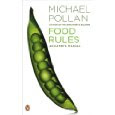
Processed foods were created to extend shelf life by removing the amino acids and nutrients that eventually break food down and cause it to mold. Processed foods are no longer "alive", if you will (and remember, tend to be found in the middle aisles of the supermarket). The longer something will sit around on a shelf, the less nutritious (and probably satisfying) it is.
Most (I can't say all, but it's pretty darn close) of the food we carry at the shops is free of processing & preservatives. From time to time someone will return a jam or other small-batch item that's started to mold - not fun to see after you've spent the money on it and brought it all the way home - but in a way, that should be reassuring, right? [insert smiley face] Look at it this way - we are fortunate to have the stock on our shelves rotate frequently enough that mold SHOULDN'T be an issue; however, the foods we carry are handmade products that would never use any type of added preservative, so sometimes it'll happen. Of course we're happy to replace the product, but I think we are so NOT used to seeing mold on food that sometimes it can be really off-putting, and certainly surprising!
Here's an idea: how about eating food that is the freshest possible, that's not treated chemically or inhumanely or in a large factory? Canning & preserving certain foods at their seasonal peak were created to help us eat those foods year round, but in general, eating with the seasons will help us get closer to any goal of eating the freshest & highest quality. Following this philosophy if any way, shape or form will be better for our health, our environment, small farms and local economies. It may seem daunting (and expensive!) but it gets easier and if you cook, it's actually not always as expensive as you may think. Cheers!
No comments:
Post a Comment